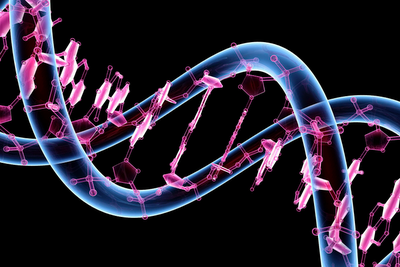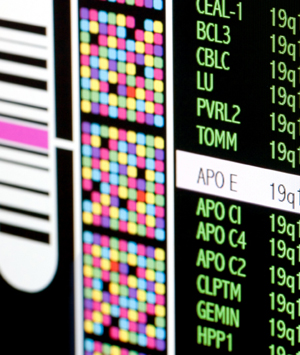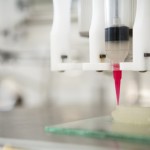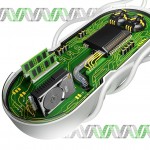 Bioinformatics is the study of data generated from biological experiments. With the advent of high-throughput sequencing and many other rapidly improving technologies Biologists are often producing far more data than they can properly analyze. With data being so easy to produce we have massive amounts of data, much of it publicly available – which could hold the keys to new medicines, cures, of breakthroughs. This data just needs someone to look through it. Using data mining software bioinformaticians look though data to find interesting patterns or to find answers to questions. But just like DIY Biology, bioinformatics isn’t restricted to professionals. Given that all you need to do bioinformatics is a computer and some spare time, anyone can do it.
Bioinformatics is the study of data generated from biological experiments. With the advent of high-throughput sequencing and many other rapidly improving technologies Biologists are often producing far more data than they can properly analyze. With data being so easy to produce we have massive amounts of data, much of it publicly available – which could hold the keys to new medicines, cures, of breakthroughs. This data just needs someone to look through it. Using data mining software bioinformaticians look though data to find interesting patterns or to find answers to questions. But just like DIY Biology, bioinformatics isn’t restricted to professionals. Given that all you need to do bioinformatics is a computer and some spare time, anyone can do it.
David Smith has written an excellent article on this topic for COSMOS magazine which I highly recommend.
DIY Bioinformatics has some similarities and some differences with DIY Biology. In one sense it is easier and more accessible than DIY Biology, being accessible by anyone with a computer. No labs, chemicals, or anything else required. On the other hand – bioinformatics can in many ways be a more daunting are to jump in on. Experience with computer programming and command line interface programs is basically a prerequisite at the moment, and if you don’t have those skills it will be a tough learning curve to traverse.
Sadly most of the easiest to use (and graphical user interface laden) software is extremely expensive – being marketed exclusively to scientists whose grant money pays for it (and thus for the cost of development). Thankfully there is a lot of bioinformatic freeware out there which is just as good – although often harder to use.
Personally I can see huge potential in crowd sourcing bioinformatic analysis to interested citizen scientists. I think the biggest hurdle however is that difficulty factor . If we can make easier to understand and follow bioinformatics tools for beginners then we can hook into an entirely new workforce, simultaneously educating and involving the public in work that can really make a difference!
















[…] this work special is the citizen scientist aspect of it. Following on from our previous article on bioinformatics as a growing hobby, this work shows that such a hobby can be a truly useful form of crowd sourced science. One of the […]
It is amazing that an appeal is made to crown bioinformaticians to help decode the pile of sequence data generated by machines that are working faster and faster without the leaders even caring to generate an intelligent gene annotation protocol based on the basic tenet of molecular biology, i.e. the flow of genetic information, instead of doing the stupid upside-down approach from phene to gene and then getting bogged down in the codon degeneracy syndrome.
reduslim recensioni vere
[…]Nice blog here! Also your website a lot up fast![…]